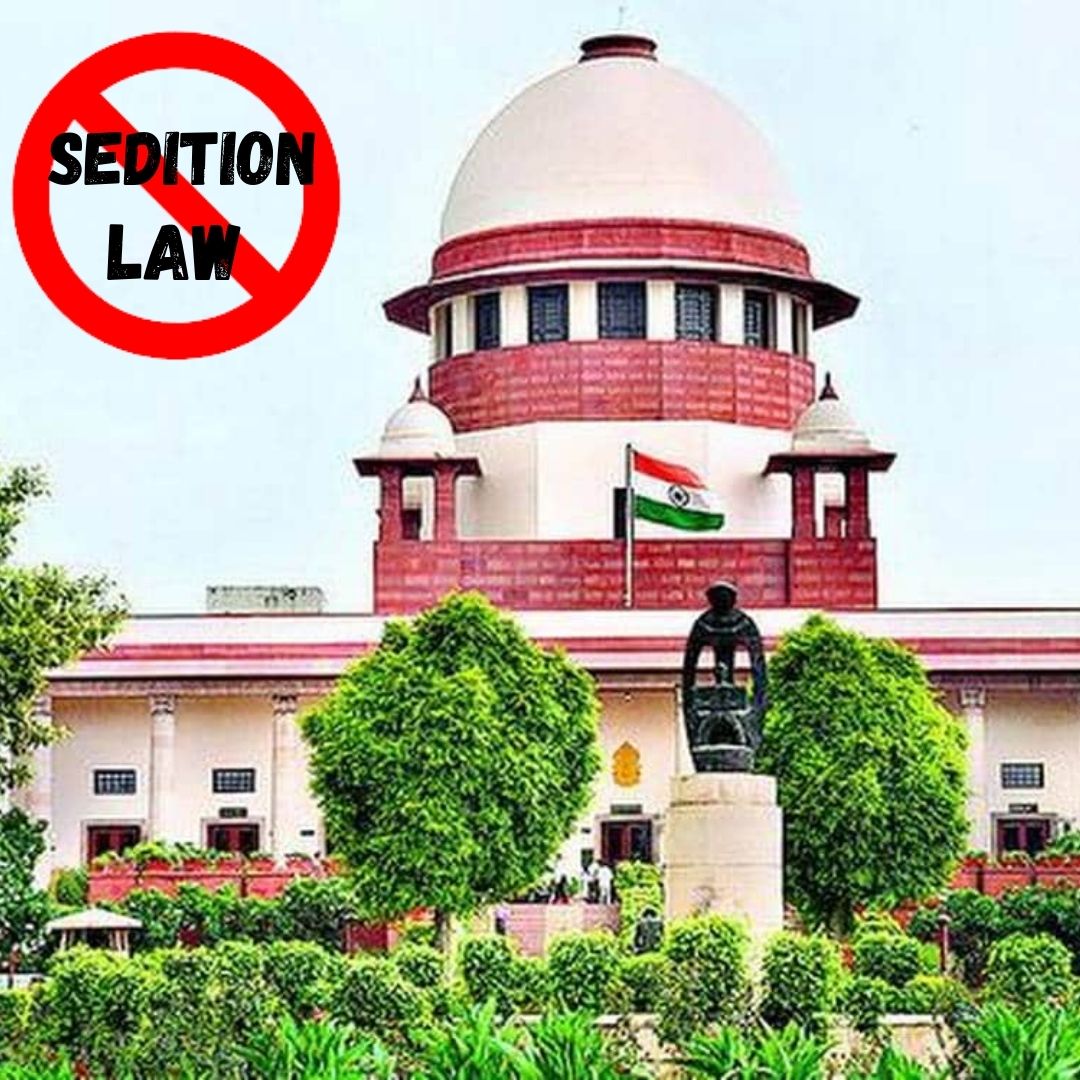
Image Credit- Wikipedia
Supreme Court To Hear Pleas On Sedition Law, Mentions 'Power Misuse' In India
Writer: Varnika Srivastava
She is an upcoming millennial journalist, gushing in the 21st century to bring the authentic piece of information to the citizens.
India, 27 April 2022 12:21 PM GMT | Updated 27 April 2022 12:34 PM GMT
Editor : Shiva Chaudhary |
A post-graduate in Journalism and Mass Communication with relevant skills, specialising in content editing & writing. I believe in the precise dissemination of information based on facts to the public.
Creatives : Shiva Chaudhary
A post-graduate in Journalism and Mass Communication with relevant skills, specialising in content editing & writing. I believe in the precise dissemination of information based on facts to the public.
The case was last heard on July 15, 2021, when the SC lamented the law's "enormous power of misuse". It is a non-bailable provision by law in India, a criminal offence punishable with a maximum sentence of life imprisonment.
The Supreme Court is scheduled to hear a batch of petitions challenging the constitutionality of the sedition law on Wednesday, April 27. A three-judge bench of Chief Justice of India NV Ramana and Justices Surya Kant and Hima Kohli of the apex court will hear the four petitions that have been pending since 2021.
The case was last heard on July 15, 2021, when the SC lamented the sedition law's "enormous power of misuse" in India. The top court asked the Union government why it should not scrap a colonial rule that the British government once used to suppress freedom movements and leaders like Mahatma Gandhi and Bal Gangadhar Tilak, reported Hindustan Times.
'Enormous Power Of Misuse'
Another bench, led by Justice UU Lalit, issued a notice in April 2021 on a case filed by two journalists challenging Section 124A of the Indian Penal Code (IPC). Journalists Patricia Mukhim and Anuradha Bhasin had filed a petition on the same subject which is also pending.
Sedition Law is a non-bailable provision making any speech/expression that brings/attempts to bring into hatred/contempt or excites/attempts to excite discontent towards the government established by law in India a criminal offence punishable with a maximum sentence of life imprisonment.
As reported by News18, the bench observed that "If you see history of charging this section, the conviction rate is shallow. The enormous power of misuse of this section can be compared with a carpenter given a saw. Instead of cutting a tree, he cuts the entire forest."
According to the National Crime Records Bureau data, such cases increased by 160 per cent to 93 between 2016 and 2019. In 2019, however, the conviction rate in similar circumstances was only 3.3 per cent, meaning that only two of the accused were found guilty.
Also Read: Supreme Court Directs Uttarakhand To Ensure No Hate Speech Is Delivered At Roorkee 'Dharam Sansad'
 All section
All section













